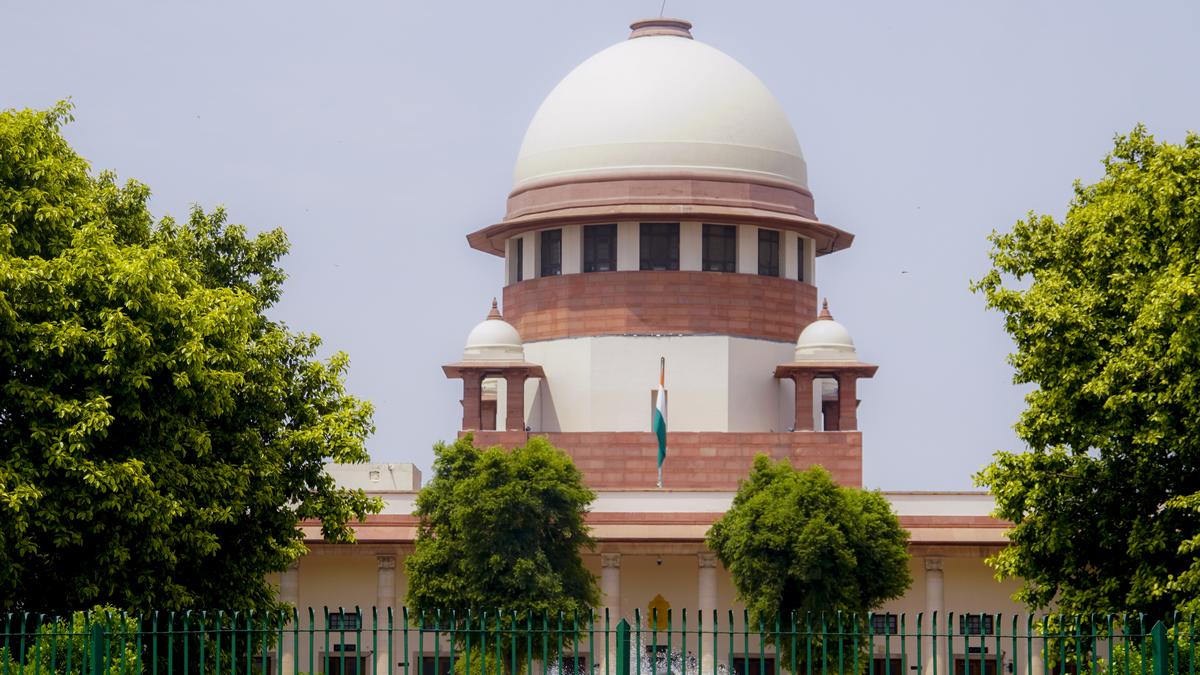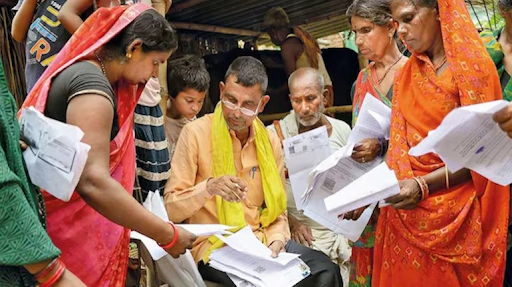



Indian Constitution allows Governors to assent or reserve bills for President's consideration, but lack of a fixed timeline, which has caused constitutional deadlocks. The Supreme Court has clarified that Governors cannot indefinitely delay decisions and that inaction is subject to judicial review, upholding parliamentary democracy principles and preventing subversion of the elected legislature's will.

Copyright infringement not intended
Picture Courtesy: THE HINDU
The Supreme Court questioned why a Governor's inaction on bills under Article 200 should be immune from judicial review when their discretion in imposing President's Rule under Article 356 is reviewable.
It is a constitutional authority appointed by the President as per Article 155 and holds office during the pleasure of the President.
Serve as the constitutional head of the state and act as a link between the Union and State governments.
Formal head of the state executive, authority is exercised on the advice of the State Council of Ministers, except in functions designated as discretionary by or under the Constitution (Article 163).
Article 200 governs assent to state Bills, providing three formal courses of action when a Bill is presented after being passed by the state legislature:
The Constitution does not specify a timeframe within which the Governor must act on a Bill.
The lack of an explicit timeline in Article 200, resulting in "pocket veto"—the indefinite withholding of assent without expressly rejecting or returning the Bill.
The inaction compromises the legislative mandate of elected governments, degrades democratic accountability, and lead to legislative deadlocks. This is observed in various states, including Tamil Nadu, Kerala, Telangana, Punjab, Chhattisgarh, West Bengal, Karnataka, and Rajasthan.
Rejection of "Pocket Veto" and Indefinite Delay: Supreme Court on several occasions, declared that inaction by the Governor on a Bill is not a constitutionally recognized mode of action and against the constitutional value of representative parliamentary democracy.
The Tamil Nadu Case (2025): In State of Tamil Nadu v/s The Governor of Tamil Nadu, the Supreme Court found the Governor's actions of delaying assent and then reserving re-passed Bills for the President unconstitutional.
Imposition of Timelines: Addressing the constitutional lacuna in Article 200 (which uses "as soon as possible" but lacks an explicit timeline), the Court prescribed strict timelines:
Scope of Discretion and Judicial Review: The Court clarified that the Governor’s discretionary powers are limited. The Governor is expected to act on ministerial advice in almost all matters.
|
Previous Rulings Shamsher Singh vs State of Punjab (1974): Governor’s discretionary powers are limited, and they should act on ministerial advice. Rameshwar Prasad case (2006): Governor’s powers to withhold assent can be reviewed if exercised arbitrarily. Nabam Rebia and Bamang Felix vs Deputy Speaker (2016): Summoning, proroguing, or dissolving the House must ordinarily be done on the advice of the Cabinet, and withholding assent indefinitely cannot be justified. State of Punjab vs Principal Secretary to the Governor of Punjab (2023): Unelected head cannot delay lawmaking by an elected legislature and reaffirmed the Governor’s role as ceremonial and facilitative rather than obstructive. |
Strengthening Constitutional Morality: By prescribing time-bound action, the Court ensures that Governors' constitutional duties are performed promptly, backing the fact that constitutional offices serve the public mandate, not partisan interests.
Reaffirmation of 'Aid and Advice' Principle: Declares that governor discretion is not absolute and is bound by ministerial advice under Article 163, upholding the Governor's facilitative role in a parliamentary democracy.
Setting a Precedent: The judgment offers a template for future cases of indefinitely stalled state Bills, accelerating adjudication in disputes from states like Punjab, Kerala and Telangana.
Expansion of Judicial Oversight: The Court's use of Article 142 to directly grant assent indicates the judiciary's willingness to rectify unconstitutional deadlocks, declaring that governors' inaction is subject to judicial review.
Judicial Overreach vs Separation of Powers: Critics argue that by imposing timelines and creating a concept of "deemed assent," the judiciary may be encroaching on the executive's domain and violating the principle of separation of powers.
Non-Justiciability: Union government argued that decisions of the Governor and President under Articles 200 and 201 are not justiciable and should be resolved politically, for example, through discussions between the Chief Minister and the Prime Minister or President.
Presidential Reference (Article 143): Following the Supreme Court's judgment, President invoked Article 143(1) to seek the Supreme Court’s advisory opinion on 14 questions, directly challenging the judicial imposition of timelines and the concept of "deemed assent".
Politicization of the Governor’s Office: Especially in states where the ruling party differs from the Union government.
Questionable Use of Discretionary Powers: Criticised for misusing discretionary powers under Article 356 (President rule) without a floor test, as seen in Uttarakhand (2016).
Lack of Accountability and Constitutional Lacunae: Governors are accountable to the President and can be removed at the Union government's discretion, without an impeachment process.
Legislative/Constitutional Amendment: Insert clear timeframes (e.g., 1-2 months) in Article 200 or state laws to eliminate ambiguities like "as soon as possible" and prevent indefinite delays.
Amend Article 163: To limit the Governor's discretionary powers, clarifying that they should only be used in exceptional circumstances impacting national interest or constitutional integrity, to prevent political bias.
Implement Commission Recommendations: Institutionalise suggestions of the Sarkaria and Punchhi Commissions on minimising politicisation of governor roles and clarifying conditions and time limits for withholding assent.
Enhanced Cooperative Federalism: Promoting regular communication between the Governor's office and the State Cabinet can help resolve issues before they escalate.
Ensuring a Neutral Governor’s Office: Integrate neutrality and constitutional expertise as key criteria in the appointment process.
Political Resolution: Resolve disputes administratively or politically within constitutional limits, rather than always through the courts.
Review and Accountability Mechanisms: Introducing an impeachment process for Governors at the state level could enhance accountability.
Clear Guidelines on President's Rule (Article 356): The Governor's discretion in recommending President's Rule must be exercised judiciously, backed by objective material, and remain open to judicial scrutiny.
Source: THE HINDU
|
PRACTICE QUESTION Q. The Governor's inaction on bills can lead to a constitutional crisis, undermining federal principles. 250 words |
No, the Indian Constitution does not specify a time limit for the Governor to give assent or otherwise act on a bill.
Yes, a Governor can withhold assent to a Bill, but this power is not absolute and is subject to judicial review.
A Governor cannot return a Money Bill to the State Legislature for reconsideration.



© 2026 iasgyan. All right reserved